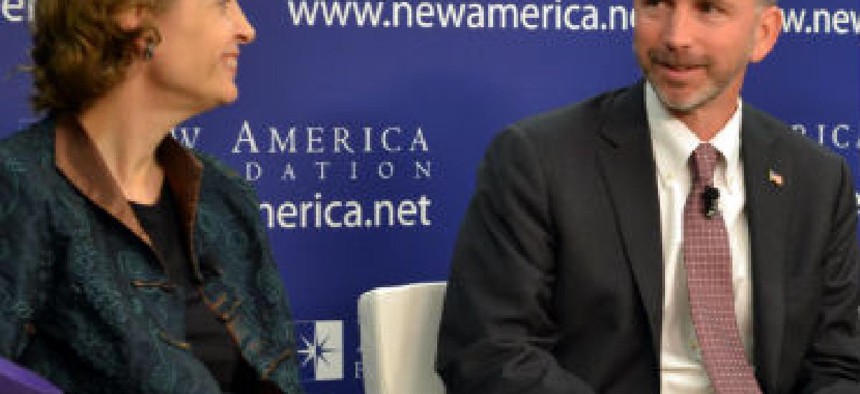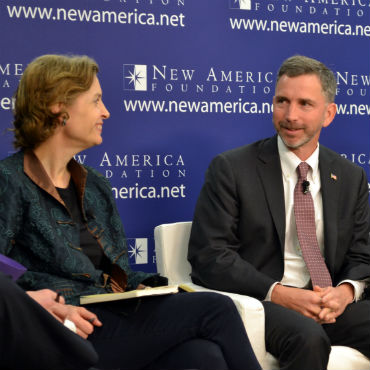It's not just about the money

Integrating IT employees into the larger agency culture and allowing them to innovate are crucial to recruiting the best and brightest for the federal workforce, experts say.

Harvard Law School's Susan Crawford and GSA Administrator Dan Tangherlini were among the experts discussing ways to attract top IT talent to government at a recent New America Foundation event.
Salary is only one obstacle to attracting technology experts to the federal workforce. Integrating IT employees into broader agency cultures and being willing to adopt innovations might be just as important, according to panelists at a New America Foundation event on the technology deficit faced by government.
Dan Tangherlini, administrator of the General Services Administration, said bringing IT employees out of the data center dungeons is essential to attracting others to work in government technology.
"You need to convince folks that they're not just a bolt-on, that they're not going to be a mechanic, they're not going to be sitting downstairs with the boiler," Tangherlini said. "They're actually going to be part of the process."
He added that acquiring tech gurus and harnessing 21st-century technology are especially important in the federal government because of technology's potential to alleviate the pinch of budget constraints.
"We're struggling with the ability to deliver the basic services that we're required to deliver," he said. "Demand is not going down, but resource constraint is coming way up. The possibility of being more efficient and effective at delivering the services by leveraging smart technology is very clear."
A report released late last year by Freedman Consulting and commissioned by the Ford Foundation and the John D. and Catherine T. MacArthur Foundation validated what federal managers have known all along: Government salaries make it hard to attract techies. The report states that the salary discrepancy between the public and private sectors is one of the biggest reasons why the government can't land IT professionals.
But it was not the only impediment.
"Among the most common barriers mentioned were those of compensation, an inability to pursue groundbreaking work, and a culture that is averse to hiring and utilizing potentially disruptive innovators," the report states.
Susan Crawford, visiting professor of intellectual property at Harvard Law School and former special assistant to the president for science, technology, and innovation policy, said such a culture could prevent the government from achieving Digital Age literacy.
"We're at this inflection point, a very interesting point in the history of governance, using technology and being more responsive to citizens, and it may actually enrich...democracy," she said. "So it's a great opportunity, and we're at risk of losing it because of the internal structures and obstacles."
Another issue is the divide between those in IT and all other employees. The government could not function without technology, but it has yet to be ingrained in policy-making and governing.
"We're still thinking of technology as a tool that implements policy, and what I'm hoping for is that we get way beyond that, that these things are deeply integrated," Crawford said.
Anne-Marie Slaughter, president and CEO of the New America Foundation and a politics professor at Princeton University, said that although it is clear that the government needs to neutralize the lost salary battle with the private sector, its culture is also not making federal work attractive.
"Part of it, of course, is that [IT professionals] have lots and lots of options in the private sector, and neither government nor civil society can match those salaries or anything like it, so we have to be able to offer something else," Slaughter said.
But bureaucracy and a change-averse culture tend to bury the "X factor" that comes with doing something meaningful as a public servant, she added.
"The presumptive 'yes' is the culture of Silicon Valley, it's the culture of technology," Slaughter said, while the federal government keeps "no" on the tip of its tongue.


